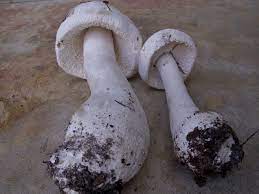1. Medicinal Applications:Certain mushrooms possess medicinal properties and have been used in traditional medicine for centuries. For example, reishi mushrooms (Ganoderma lucidum) are believed to have immune-boosting properties, while lion’s mane mushrooms (Hericium erinaceus) are thought to support brain health. The pharmaceutical and nutraceutical industries have shown interest in these medicinal mushrooms, leading to the cultivation and extraction of active compounds for various health supplements and drugs.
2. Biotechnology and Research: Mushrooms have applications in biotechnology, particularly in the fields of bioremediation and bioenergy production. Some mushroom species can degrade environmental pollutants and toxins, making them useful in cleaning up contaminated sites. Additionally, mushrooms can be used to produce biofuels and bio-based materials, contributing to sustainable energy solutions.
3. Commercial Cultivation: The commercial cultivation of mushrooms provides employment opportunities and income for many people worldwide. High-demand edible mushrooms, such as shiitake, oyster, and portobello, are cultivated on a large scale, contributing to the global food industry.
4. Environmental Impact: Mushrooms play a vital role in ecosystem functioning. They are essential for nutrient recycling and decomposition of organic matter in forests and other natural habitats. By breaking down dead organic materials, mushrooms contribute to soil health and fertility, which is crucial for agricultural productivity.
Read Also : Economic Importance, Uses, and By-Products of Mushroom Stipe
5. Recreational and Ornamental Purposes: Some mushroom enthusiasts engage in recreational activities like mushroom foraging or mushroom hunting. Additionally, certain species of mushrooms, such as morels (Morchella spp.) and chanterelles (Cantharellus spp.), have ornamental value and are used for decoration in floral arrangements and culinary presentations.
6. Food Industry Byproducts: In some cases, mushroom scales or warts may be considered byproducts of mushroom processing or cultivation. While the scales or warts themselves might not have direct economic uses, some byproducts generated during mushroom processing could be repurposed for various applications. For instance, mushroom waste or spent mushroom substrate (SMS) can be used as compost or biofertilizers, which contribute to soil improvement and sustainable agriculture.
7. Culinary Innovations and Specialties: Certain mushroom species with unique features like scales or warts may find use in specialty culinary dishes or gourmet presentations. Chefs and culinary enthusiasts often seek distinctive and visually appealing ingredients to create innovative dishes and attract customers in high-end restaurants or specialty food markets.
8. Traditional Craftsmanship: In some cultures, mushroom scales or warts, especially those with interesting textures or shapes, might be utilized in traditional crafts and artwork. For example, in artistic sculptures or crafts made from natural materials, these mushroom features could add a distinct visual appeal.
9. Scientific Research and Education: Mushroom scales or warts, as well as other unique physical characteristics of mushrooms, can be of interest to mycologists (scientists who study fungi) and researchers. Studying these features may provide insights into the taxonomy, ecology, and biology of different mushroom species. Moreover, educational institutions may use such features to teach students about the diversity of fungi in the natural world.
It’s essential to emphasize that the specific uses and economic importance of mushroom scales or warts might vary depending on the species and their characteristics. Additionally, developments and research may have occurred since my last update in September 2021. For the most accurate and current information on this topic, I recommend consulting more recent sources or reaching out to experts in mycology or mushroom-related industries.
The Products and By-products That Can Be Derived From Mushroom Scales or warts

Here are some potential uses of mushrooms and their by-products, though not necessarily specific to scales or warts:
1. Edible Mushrooms: Common culinary mushrooms like button mushrooms, shiitake, oyster mushrooms, etc., are widely consumed and used in various dishes.
2. Medicinal Mushrooms: Some mushrooms are used for their potential medicinal properties, such as reishi (Ganoderma lucidum) and chaga (Inonotus obliquus), which are believed to have health benefits.
3. Mushroom Extracts: Some mushrooms contain compounds that can be extracted and used in skincare products for their anti-inflammatory and antioxidant properties. For example, the shiitake mushroom extract is known for its potential to enhance skin health.
4. Mycelium Packaging: Mycelium, the root-like structure of mushrooms, can be used as a biodegradable packaging material that is eco-friendly and sustainable.
5. Mycoremediation: Certain mushrooms can be used for mycoremediation, a process that involves the use of fungi to clean up polluted environments. They can absorb and break down various pollutants.
6. Mushroom Residues: Some mushroom by-products, such as agricultural residues after mushroom cultivation, can be used in the production of biofuels or bioplastics.
7. Mushroom Scale Extracts: Extracts from mushroom scales or warts may contain unique compounds that could have potential health benefits. These extracts could be formulated into dietary supplements to support immune health, provide antioxidants, or offer other bioactive properties.
8. Traditional Medicine: In some cultures, certain parts of mushrooms, including scales or warts, might be used in traditional medicine practices. However, further research would be required to understand their medicinal properties and safety.
9. Biotechnology: Mushroom scales or warts may contain substances that can be harnessed for biotechnological purposes, such as the production of enzymes, bioactive compounds, or bio-based chemicals.
10. Mushroom Scale Powder: If mushroom scales or warts are safe for consumption, they might be processed into a powder and used as a natural food or beverage additive, providing flavor, color, or potential health benefits.
11. Fertilizers: Decomposed mushroom scales or warts could be utilized as organic fertilizers, enriching soil with nutrients for plant growth.
Read Also : Farming Tractor Operation Guide
